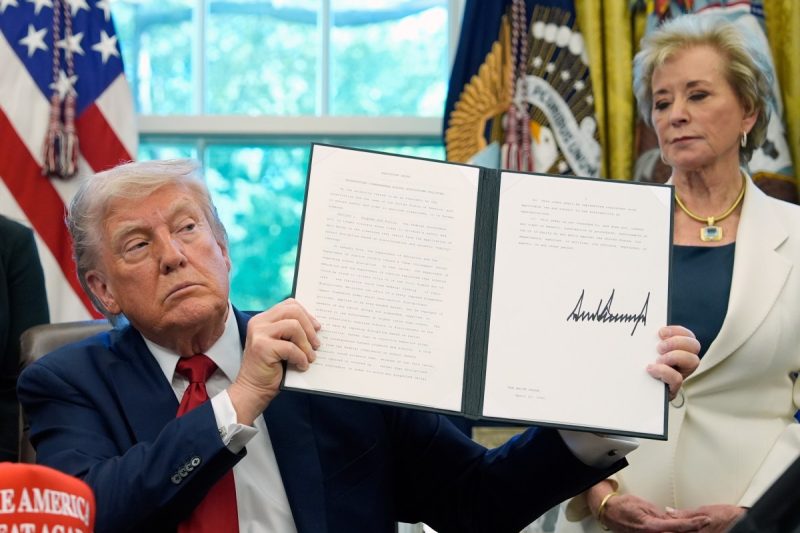
President Donald Trump signed an executive order on Wednesday aimed at restructuring the university accreditation process, a move with significant implications for institutions receiving federal funding. This action, described by Trump as a “secret weapon” in education policy during his campaign, targets the way universities qualify for federal aid.
The core of the executive order focuses on shifting the accreditation criteria to prioritize measurable “results.” This represents a departure from the existing system, where external agencies, not the federal government, accredit universities based on established standards. While the Department of Education currently determines which accreditation agencies it recognizes, this new order seeks to fundamentally alter this dynamic.
The order mandates that the Department of Education hold university accreditors accountable for failing to meet recognition criteria or violating federal law, potentially leading to the revocation or suspension of federal recognition. It specifically targets accrediting agencies that allegedly enforce what the administration views as “illegal discrimination” under the guise of diversity, equity, and inclusion initiatives. Furthermore, the order promotes the recognition of new university accreditors.
The Trump administration argues that current accreditation entities have overemphasized “progressive ideology” at the expense of tangible outcomes, according to White House Chief of Staff Will Scharf. This executive order extends beyond undergraduate institutions, impacting law schools and graduate programs as well.
In a related move, Trump also signed an order to enforce existing laws requiring universities to disclose significant foreign donations. A top Trump advisor cited Harvard University as an example of an institution allegedly violating this law, though no evidence was provided. Federal law mandates disclosure of foreign donations or contracts exceeding $250,000 annually for institutions receiving federal funds; some members of Congress are pushing to lower this threshold to $50,000.
These executive orders come amidst a period of heightened tension between the Trump administration and Harvard University. The administration has previously frozen billions in federal funding for Harvard, demanded significant policy changes, and even suggested the university should lose its tax-exempt status. On Wednesday, Trump also signed separate executive orders focused on supporting Historically Black Colleges and Universities (HBCUs), promoting AI education, bolstering apprenticeship programs, and allowing educators to implement the administration’s school discipline policies.
The implications of this sweeping change to the accreditation process remain to be seen, but it’s clear that it will significantly impact the landscape of higher education in the United States, potentially triggering further legal challenges and debate.










